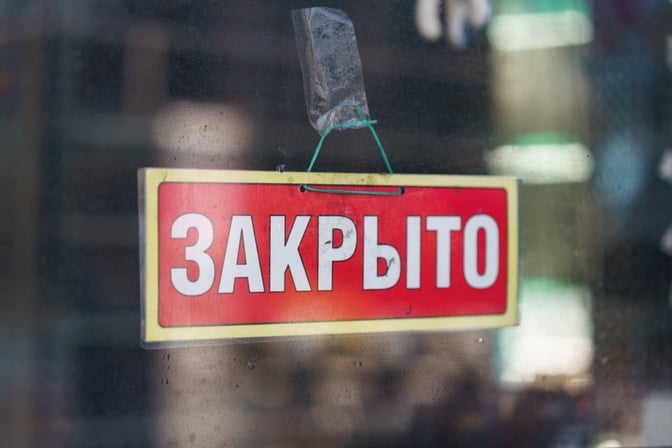Russian bill No. 571793-6, which is also called Доктрина демократического развития интернета (the Digital Economy National Program), or “ДНП” for short would increase the government’s ability "flick the switch."
First Published 18th February 2019

The frameworks for geographically-based, isolated internets continue to gain momentum.
4 min read | Reflare Research Team
On February 12th, Russian lawmakers passed the first draft of a law named the Digital Economy National Program. This law would significantly increase the Russian government’s ability to disconnect the country from the global internet. Tests of such activities may take place in the near future. In this briefing, we will take a look at the contents of the law, the challenges of disconnecting from the internet and what effects a successful law and test would have.
What’s in the law?
According to reporting provided by UPI which in turns draws on reporting done by the Moscow Times the law contains three main technical directives. Let’s have a look at them one by one.
1) The creation of a local domain name system (DNS)
While only scratching the surface of its complexity, the domain name system translates human-readable domain names (e.g. google.com) into machine-readable IP addresses (e.g. 172.217.161.238). The system is global and distributed - meaning that it likely would cease to function within Russia if the country were to disconnect from the internet. This in turn would mean that it might be difficult or impossible for Russian users to connect to Russian services, even though both are technically still on the same network. It is likely that the “development of an alternative system” will ultimately mean the implementation of very aggressive caching policies.
2) Centralize the control over national internet traffic
This is more of a policy issue than it sounds. While technically Internet Service Providers (ISPs) handle the routing of their own traffic, their number is limited. Subsequently, any government can impose demands on ISPs (even those willing to go against a law) quite easily through regulatory or policy measures.
3) Implementation of tools to identify the source of internet traffic and limit access to banned websites
The exact intentions of this measure are unclear. Anything from basic content filters implemented on a per-IP basis to deep packet inspection monitoring the actual contents of user traffic to mandatory malware installed on all computers in the country are potential options to satisfy this clause. Time will tell which one (if any) is accurate. The goal however is straight-forward: With limited access to information and lack of anonymity, dissidents can easily be suppressed.
What are the challenges of disconnecting and why would Russia want to try it?
When disconnecting a country from the internet, the change is not immediately apparent to currently running software. This can lead to timeouts and application crashes. Some practical examples are:
1) End-users using Google’s DNS server (8.8.8.8) to circumvent censorship become unable to connect to any website.
2) Webservices trying to load resources from servers outside of Russia will crash or stall.
3) Operating systems trying to update or install additional software may be unable to do so.
Along with many other potential issues, the outcome of disconnection is so unforeseeable that even the Russian government cannot be sure what will happen. The best case scenario is a test resulting in no more than some inconvenience for individual users. The worst-case scenario includes the malfunctioning of the state’s utility grid and industry. Both extreme cases are unlikely but without an actual test, it is virtually impossible to tell where between them the real consequences will fall.
Summary
Disconnecting a country from the internet can have severe and far-reaching consequences even if the move is well prepared. These consequences are hard to predict. By temporarily disconnecting from the internet, the Russian government will gain insight into exactly what consequences to expect in case of a longer-term disconnection. If these consequences are mild, it gains a powerful tool to censor the internet, control public opinion, and quell popular uprisings like the Arab Spring.


